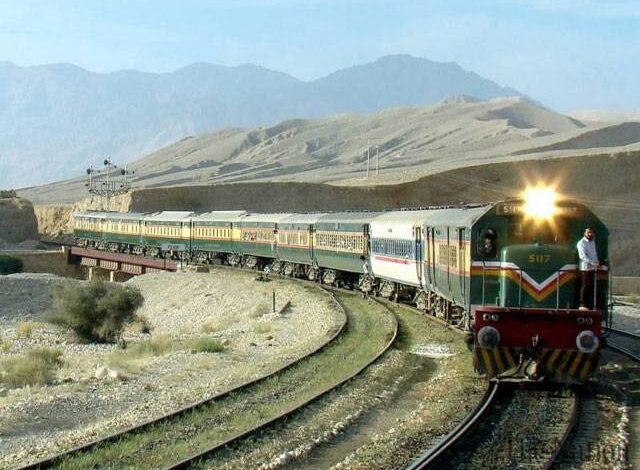Pak-China Sign ML-1 Railway Agreement: Boost for Karachi-Peshawar Route

In a significant move under the China-Pakistan Economic Corridor (CPEC), Pakistan is set to finalize a revised agreement with China for the Main Line 1 (ML-1) railway project. This development comes during the ongoing visit of the Pakistani Prime Minister to China and marks a pivotal step towards enhancing Pakistan’s railway infrastructure.
Key Features of the ML-1 Project
The ML-1 project a massive initiative aimed at constructing a dual-track railway spanning 1,733 kilometers from Peshawar to Karachi. This new line will enable trains to travel at speeds ranging from 140 to 160 km/h, significantly improving the efficiency and reliability of the railway network.
Economic and Employment Impact
One of the most promising aspects of the ML-1 project is its potential to revolutionize Pakistan’s railway freight market. The market share of railway freight expected to surge from the current four percent to 20 percent. Additionally, the project projected to create job opportunities for 20,000 technical experts, boosting the local labor ratio to 90 percent and providing a substantial lift to the economy.
Financial Agreement Details
Pakistan and China are nearing the finalization of a new financing agreement to address the financial hurdles facing this extensive infrastructure project. According to sources, China will cover 85 percent of the project’s funding, with Pakistan contributing the remaining 15 percent from its own resources.
Phased Implementation Plan
The ML-1 project will executed in phases to ensure systematic upgrades and efficiency improvements:
- Initial Phase: The focus will be on upgrading critical sections including Nawabshah to Rohri, Lahore to Multan, and Lahore to Lala Musa. These sections are essential for enhancing the overall efficiency of the railway network.
- Subsequent Phase: This phase will prioritize the Kemari to Hyderabad and Hyderabad to Multan sections, which are crucial for improving connectivity in these areas.
- Final Phase: The last phase will cover upgrades from Lala Musa to Rawalpindi and Rawalpindi to Peshawar. Additionally, enhancements will made to the Havelian Dry Port, a vital facility for cargo handling.
Strategic Importance
The ML-1 project is not just a transportation upgrade; it is a strategic initiative to strengthen the economic ties between Pakistan and China. By facilitating smoother and faster rail transport, it will enhance trade routes and contribute to the broader goals of the CPEC.
Conclusion
As Pakistan and China prepare to sign the revised agreement for the ML-1 project, this ambitious railway upgrade promises to be a game-changer for Pakistan’s infrastructure. The project’s successful implementation will not only improve railway efficiency but also stimulate economic growth and create substantial employment opportunities, heralding a new era of connectivity and development for the region.
Source link